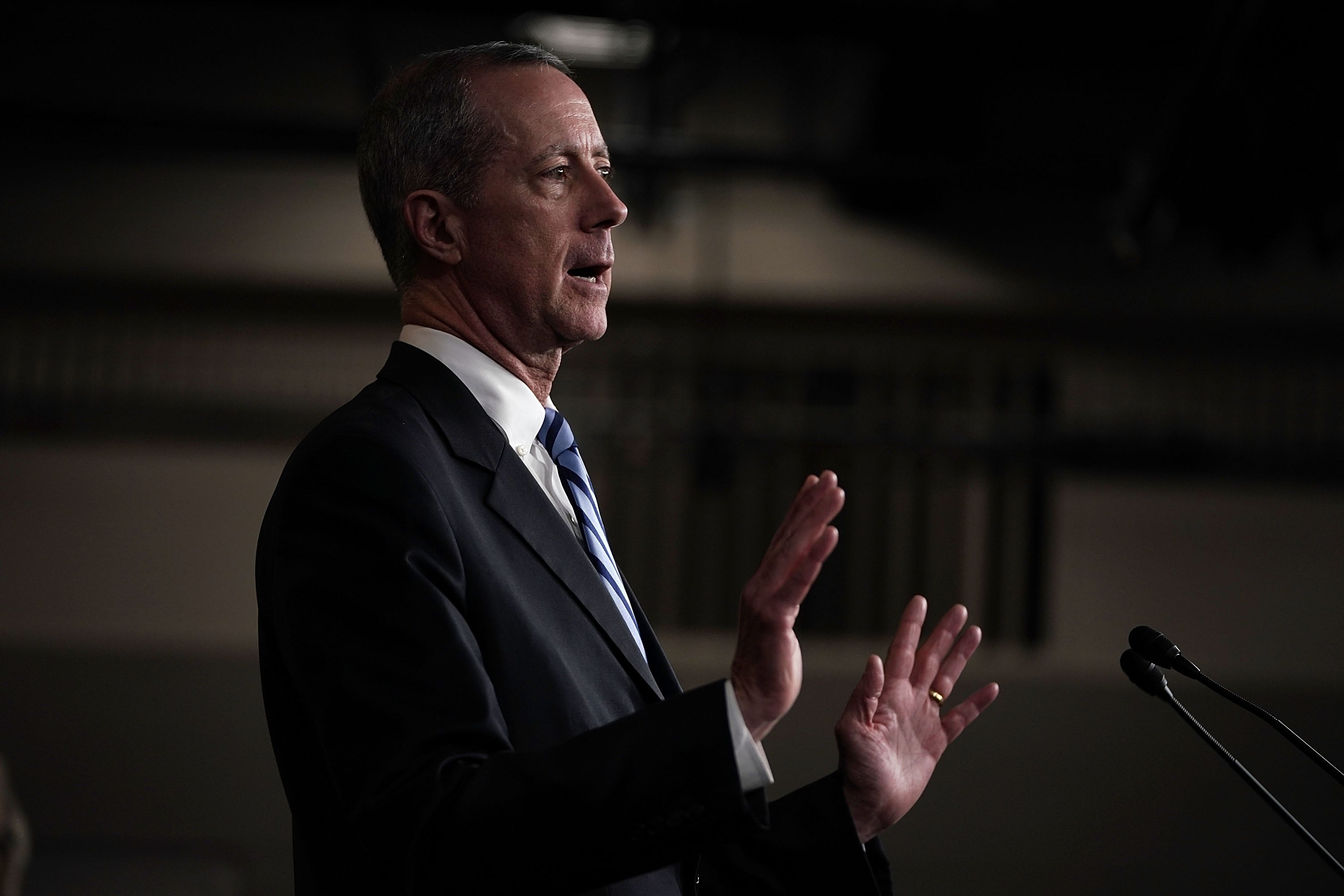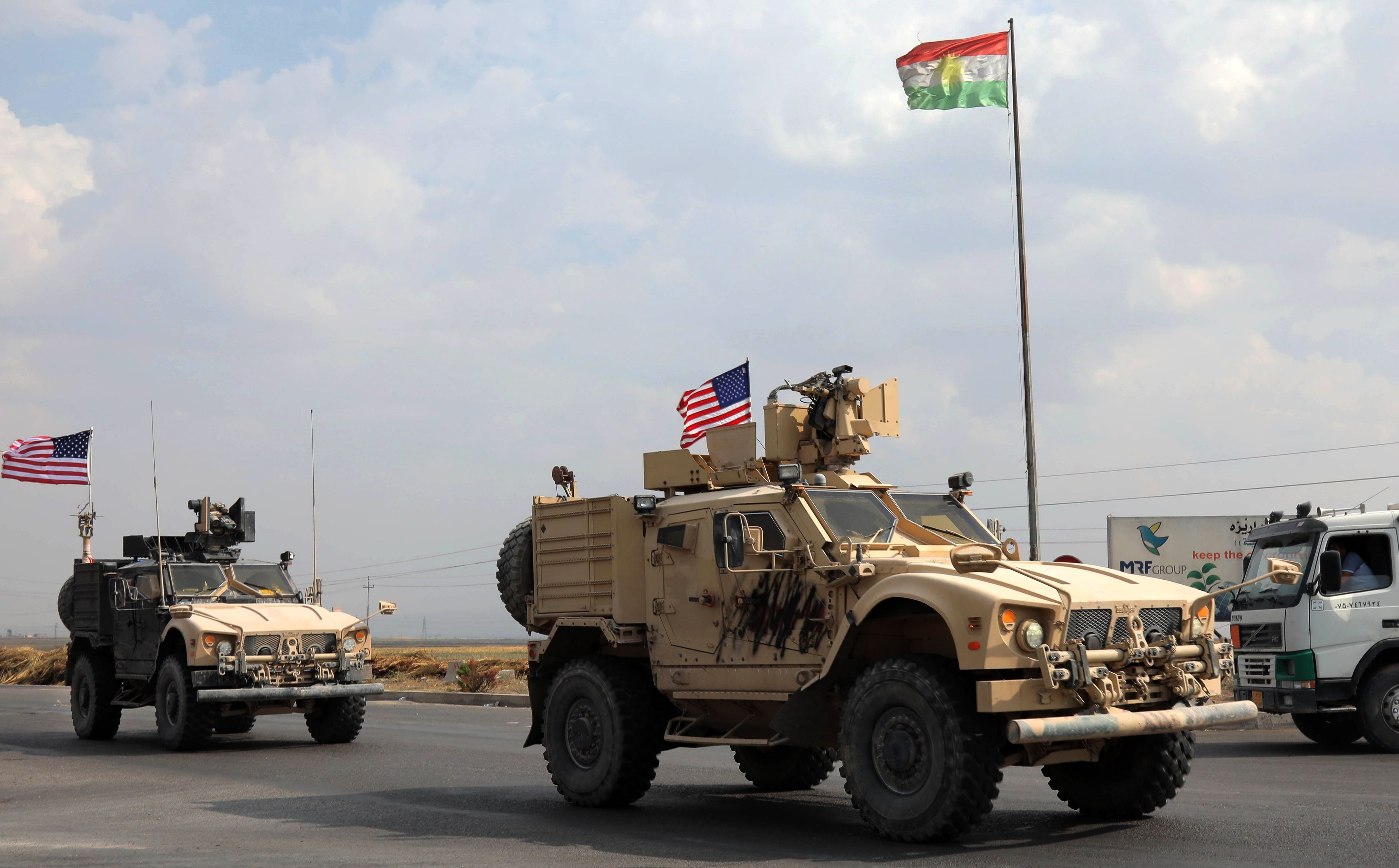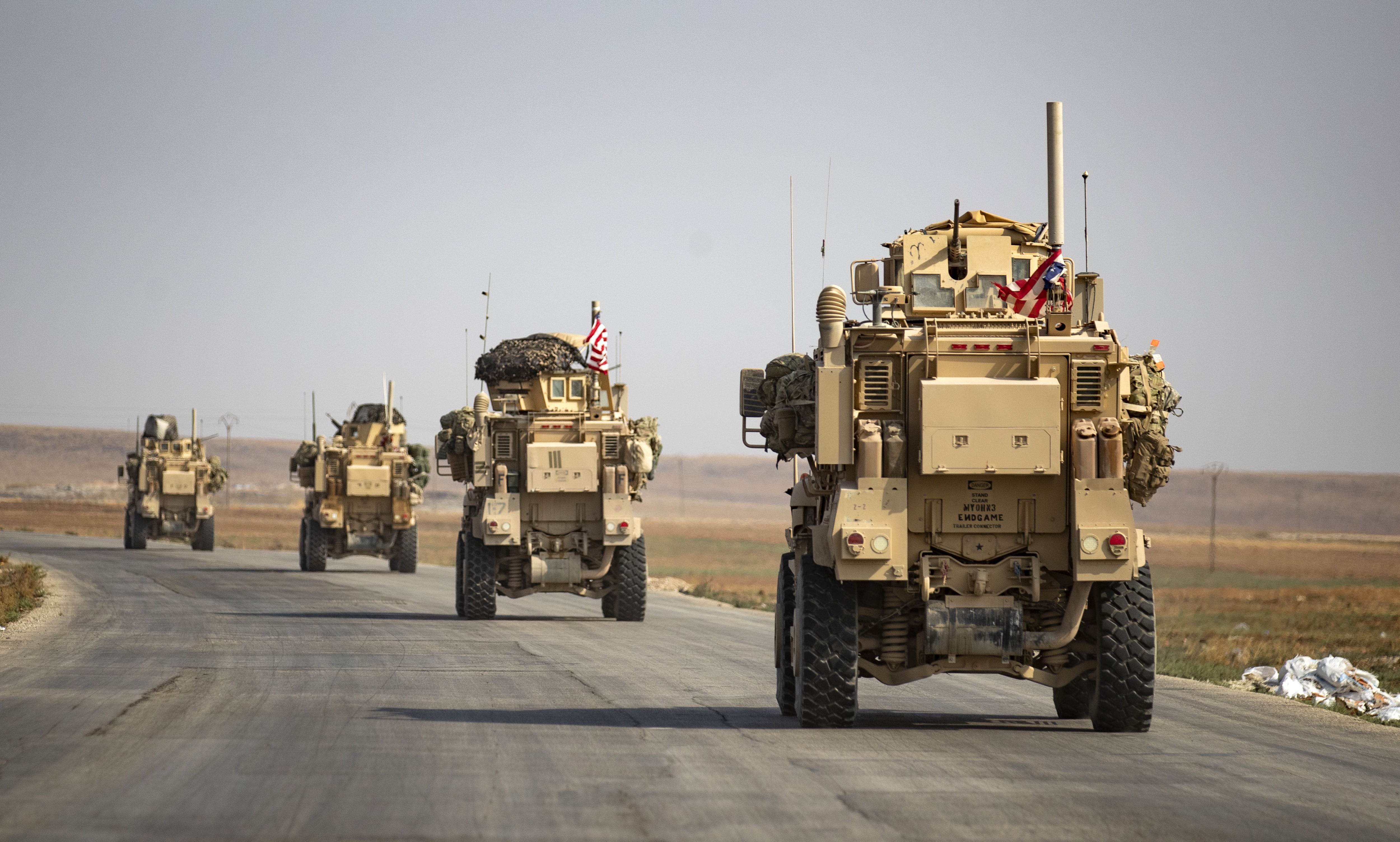WASHINGTON ― U.S. special envoy for Syria and the Global Coalition to Defeat ISIS, Jim Jeffrey, said Tuesday that more than 100 Islamic State prisoners have escaped to parts unknown.
“[T]he number is now over 100. We do not know where they are,” Jeffrey said, amid questions from House Foreign Affairs Committee Chairman Eliot Engel, D-N.Y. Jeffrey hastily added that the prisons guarded by America’s Kurdish partners, known as the Syrian Democratic Forces, are still under guard, the U.S. is monitoring them and that the prisons remain a top priority.
Turkey’s incursion into northern Syria "has scrambled the entire northeast, undercut our efforts against ISIS, and brought in the Russians and Syrian regime forces in a way that’s really tragic for everyone involved,” Jeffrey said.
He acknowledged that President Donald Trump was aware the decision to pull U.S. troops from northeastern Syria would mean the U.S. “would have less ability” to work with the SDF against the remnants of ISIS. He later said he was heartened by Trump’s decision not to withdraw all troops.
“We obviously had troops there, the mission was defeating ISIS, so if you remove those troops before that mission is complete, you have a problem―and we do have a problem right now,” Jeffrey said. “We are working our way through it right now, we are looking at various options for working with the SDF, what kind of military coalition presence will be in the northeast.
RELATED

A day after Jeffrey made headlines testifying in the Senate that Trump never personally consulted him on his decision to withdraw pull U.S. troops, he told the House Foreign Affairs Committee that Trump had repeatedly consulted with Jeffey’s boss, Secretary of State Mike Pompeo.
“I have never briefed the president nor would I have ever expected to brief the president. I work for [Secretary of State] Mike Pompeo,” Jeffrey said, declining to say what he recommended about before Trump’s decision to pull U.S. military forces out of Syria.
Jeffrey testified amid bipartisan outrage at that decision and a push by Republican leaders to reverse it. Lawmakers questioned whether it weakened America’s global leadership, displaced thousands of Kurds and empowered Russia, Iran and the Islamic State.
The Democrat-led panel hammered the decision. Engel voiced his “disgust” with what he called a “stunning defeat,” an example of Trump’s “whipsaw foreign policy” and “a body blow to our national security.”
“Ambassador Jeffrey, you have a very hard job in defending what’s not defendable,” Engel said. “I think that will effect us for years and years, and decades to come. I think this will go down as one of the major American blunders in history. I think what we’ve done there is shameful.”
Though lawmakers from both sides of the aisle argued the U.S. had a moral obligation to protect its Kurdish partners, Jeffrey said that was never U.S. policy. He had explicitly and repeatedly told the Kurds that the U.S. would not take military action against a NATO ally.
Short of military force, the U.S. had “powerful tools,” to dissuade the Turkish incursion, including a U.S.-trade package the Countering America’s Adversaries Through Sanctions Act, or CAATSA, meant to punish Turkey’s acceptance of the Russian air defense system, he said.
In the middle of the hearing, Trump announced from the White House that Turkey had informed the U.S. it will make “permanent” a five-day cease-fire in Syria. In response, Trump said he’s directing the lifting of economic sanctions on Turkey.
Claiming success at the U.S.-brokered effort, Trump said Wednesday, “this was an outcome created by us.” The cease-fire required Kurdish forces formerly allied with the U.S. against the Islamic State group to move out of a roughly 20-mile zone on the Turkish border.
Trump said, “We’ve saved the lives of many, many Kurds.”
Trump said nearly all U.S. troops will be leaving Syria but some will remain to safeguard oil fields in Syria. Russian forces have since begun joint patrols with Kurdish forces along the Turkish-Syrian border.
Trump said if Turkey breaches the cease-fire the sanctions could be reimposed.
RELATED

Meanwhile, Russian military police began patrols on part of the Syrian border Wednesday, quickly moving to implement an accord with Turkey that divvies up control of northeastern Syria. The Kremlin told Kurdish fighters to pull back from the entire frontier or else face being “steamrolled” by Turkish forces.
Turkish President Recep Tayyip Erdogan echoed those warnings, saying his military would resume its offensive against Kurdish fighters if the new arrangements are not carried out.
Erdogan and Russian President Vladimir Putin reached an agreement Tuesday that would transform the map of northeast Syria, installing their forces along the border and filling the void left by the abrupt withdrawal of American troops. The Kurdish fighters, who once relied on the U.S. forces as protection from Turkey, were given a deadline of next Tuesday evening to pull back from border areas they have not already left.
When asked about an agreement between Russia and Turkey to conduct joint patrols inside Syria, Jeffrey said he was, “cynical," and “very troubled,” adding, “They aren’t going to accomplish anything good with that agreement.”
Iraq, meanwhile, closed the door on the U.S. military’s attempt to keep the troops leaving Syria on its soil. Iraqi Defense Minister Najah al-Shammari told The Associated Press that those troops were only “transiting” Iraq and would leave within four weeks, heading either to Kuwait, Qatar or the United States.
Senate Majority Leader Mitch McConnell on Wednesday fast-tracked his own Senate joint resolution, which would express "the sense of Congress on the precipitous withdrawal of US Armed Forces from Syria and Afghanistan, and Turkey’s unprovoked incursion into Syria.”
It calls for a halt to the withdrawal of U.S. forces from Syria, “where practical,” and the continued use of air power to target the Islamic State and provide protection to ethnic and religious minorities in northeastern Syria. The construction of the resolution sets up a test for whether lawmakers support a troop presence in Syria, which had been a thorny political prospect for years.
RELATED

At Wednesday’s House Foreign Affairs Committee hearing, Rep. Brian Mast, R-Fla., railed against the panel for not doing enough to draft a new authorization of the use of military force―which prompted Engel to agree to work with him on the matter.
Lawmakers on both sides of the aisle have accused Trump of green-lighting the Turkish incursion, which some described as an “ethnic cleansing” operation against the Kurds. Jeffery repeatedly denied both assertions to incredulous lawmakers.
In an exchange with Rep. Adam Kinzinger, a Republican critic of the president’s move, Jeffrey said, “Whatever else we’ve done or not done, we did not give a green light.”
Kinzinger replied, “It was a proverbial green light,” arguing Turkey would not have advanced because it would have endangered U.S. forces stationed near the border.
But Jeffrey said the presence of 25 or so U.S. troops from the path of Turkish forces, “was not in the Turkish decision chain,” adding later that, “the Turks would have simply driven around them.”
Repeatedly, Jeffrey denied a connection between Trump’s decision to withdraw troops and the Turkish incursion.
“The president only said he would withdraw the troops only after he couldn’t convince Erdogan not to come in,” adding that Trump was protecting the troops as commander-in-chief.
The Associated Press contributed to this report.
Joe Gould was the senior Pentagon reporter for Defense News, covering the intersection of national security policy, politics and the defense industry. He had previously served as Congress reporter.





